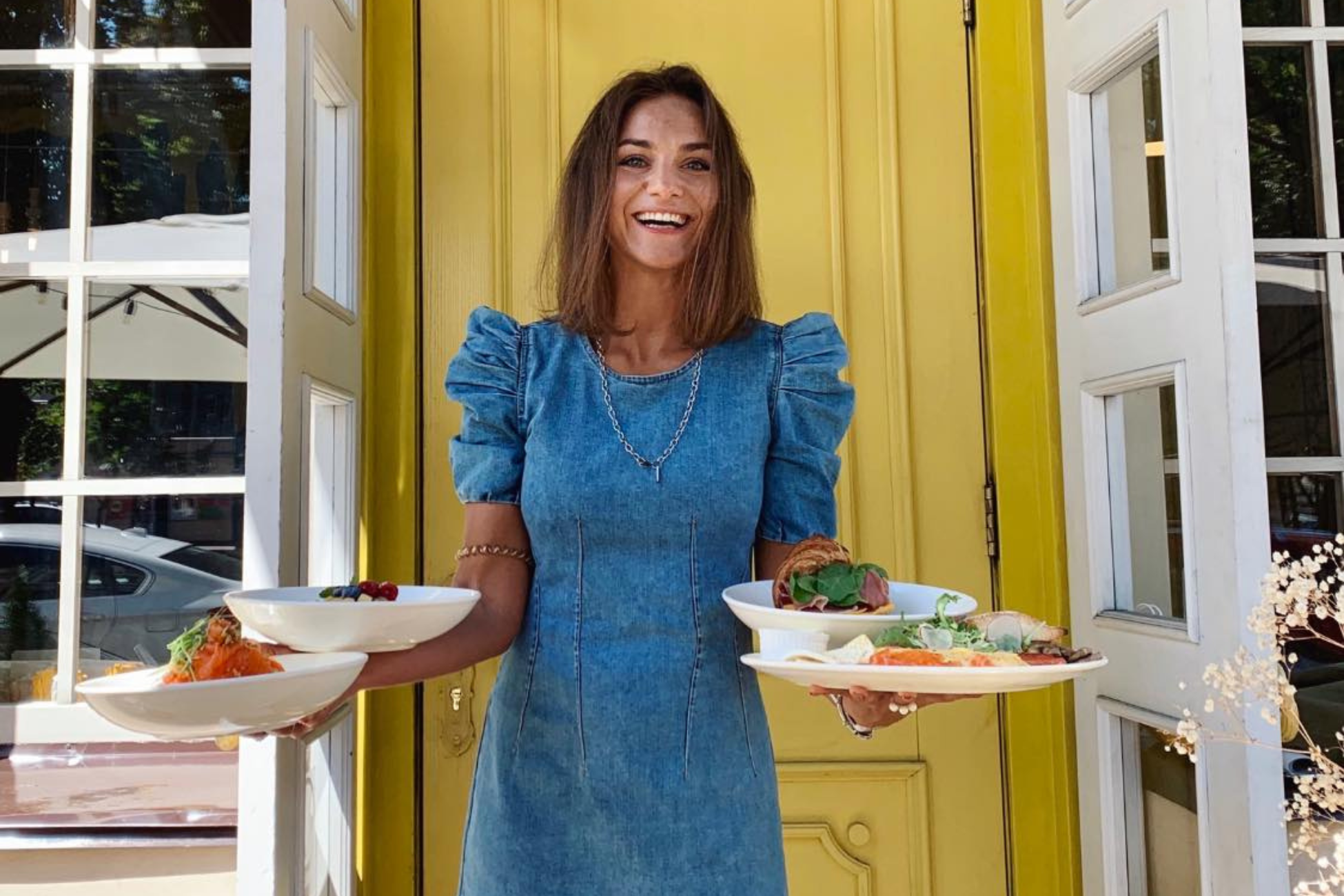In the words of Anna Zavertaylo: “I had to come to terms with the idea that I could lose everything…”
Date:

In the first days following Ukraine’s full-scale invasion by Russia in February 2022, everyone was impressed by the unity of Ukrainian men and women. Many businesses and ordinary citizens donated their cars for humanitarian needs, prepared food, organized volunteer initiatives and helped financially. Now, many companies have resumed commercial activities and continue to volunteer support. Anna Zavertaylo is co-owner of the Zavertaylo bakery and the Honey Pastry Café in Kyiv. She is one of the entrepreneurs who, since the first days of the war, redirected her business to support local people and the resistance.
We were preparing for a possible invasion, but we did not believe in it until the end. Somewhere around the end of January, we started telling the management team that such situation was possible. We took some management actions: we tried to get out of debt as much as possible; we partially planned a cash reserve to pay for first aid support for our personnel in case of a war.
On 24 February, at 5 a.m., we already began to correspond with the management and agreed that on this day the institutions would not work, and we had to act according to the situation. The business itself stopped only on 24–25 February. From then on, we actively engaged in volunteer work. At that time, we did not have a clear understanding of who would help us, so we simply moved our own resources. We used all the provisions we had. It turned out that we had a lot of connections with the military, so we immediately started feeding specific brigades. In addition, we always helped "Okhmatdyt" [the largest children’s hospital in Ukraine] and later the Amosov Hospital, [where there were elderly people without access to food].
The first week we spent our own funds. We gave away everything we had: from cookies to ready-made cakes. It seems to me that all of the businesses that remained in place acted the same way.
In fact, our cafés served as volunteer hubs. The first week we were in ‘uncertain mode’. There were sirens, alarms and an unclear situation, so no announcements were made. Later, we announced our return, and for the people who remained in Kyiv, this meant certain support. They could come to their favourite bakery and feel something permanent – of their own – and hug each other.
There are actually a lot of difficulties. I had to come to terms with the thought that I could lose everything, everything that my husband and I had built for 10 years: our business, team and income. These thoughts do not bring optimism or bravery. But as the days passed, we saw how the Armed Forces were fighting and realized that we could be useful to them. We started working and the internal conditions improved. Our frustrations did not last long, because now we have a lot to give.
There were people from our team who joined the army – many of them. We help them with equipment, collect what is necessary for the war. We have people who lost their loved ones in Bucha, whose loved ones were tortured, and it is extremely difficult to go through this with them.
We are constantly under the influence of news: if there is good news, we work; if there is bad news, everyone is upset. This also affects the quality of our work.
The war changed our plans. We were supposed to open a big project this year, but now that is frozen.
This article was produced in partnership with Wonder Ukraine media under the “Transformational approaches to achieving gender equality in Ukraine” project, implemented by UN Women Ukraine and funded by the Government of Sweden.